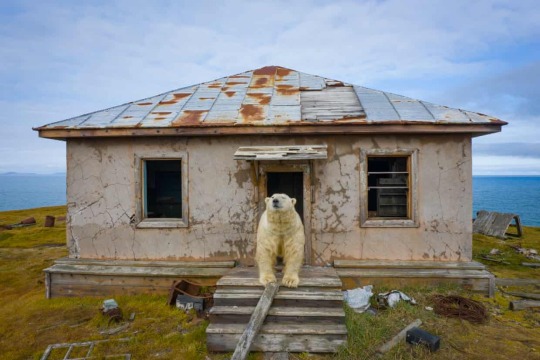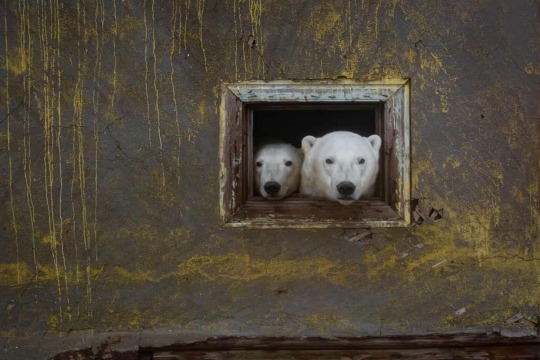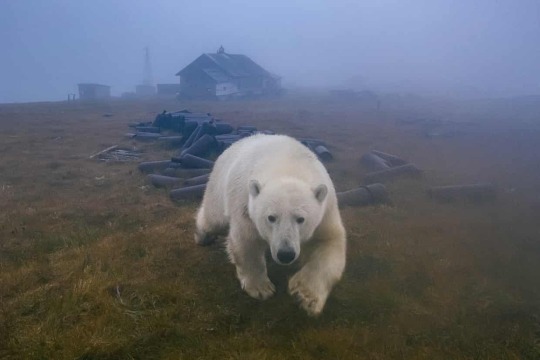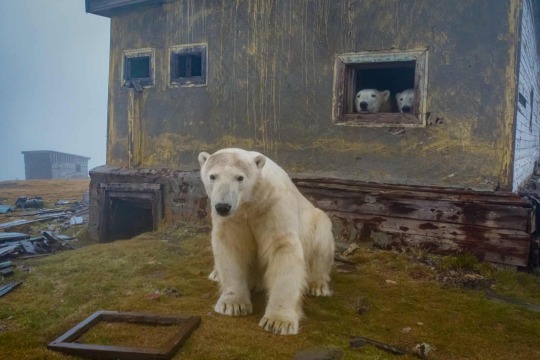Text
“My wife, Helen, died on Sunday, September 11, 1977. A few days earlier, she’d had a stroke, a massive pontine hemorrhage, which hit her while she sat at her desk in the university library (she had only time to say to a friend, “My arm feels funny,” before she lost consciousness).
Alexander Shulgin, PIHKAL (88)
7 notes
·
View notes
Text
“I survived. I still have no idea how two clocks (the word-sequence and pitch clock, and the apparent-elapsed-time clock) could run at such different rates at the same time, and still both always point to the same hour.”
Alexander Shulgin, PIHKAL (79)
1 note
·
View note
Text
“Why would you turn down six million dollars to set up a lab in Jamaica?”
Alexander Shulgin, PIHKAL (62)
1 note
·
View note
Text
“I was unaware of the fact that the Swedish government had just nationalized the pharmacy industry, and one of the rationalizations they had advanced for this heavy-handed action was that now the profits from this health-industry could be directed towards research and education. ‘Research’ included such things as sponsoring international meetings on drug-related projects.”
Alexander Shulgin, PIHKAL (57-58)
1 note
·
View note
Text
“I might find myself having to deal with the nature and structure of scientific imagination and how it could be channeled”
Alexander Shulgin, PIHKAL (44)
0 notes
Text
Week 1 Blog
PIHKAL
Alexander Shulgin
PAGES READ 1-40
WORDS : 551
Summary
Alexander Shulgin describes his upbringing as a child born in 1925, in Berkeley California, to a Russian migrant father and an American mother. He also describes the role of his father, Theodore Stevens Borodin, a household disciplinarian and teacher of history and literature in Oakland. Shulgin tells of his father’s social life, saying that his social circle mostly consisted of Russian emigres who had come to the United States in the 1920’s in order to escape Bolshevism. WIth the opening of immigration doors by President Harding, many came to San Francisco to start a new life. Shulgin explains that most impressions of his father have come from stories retold to him by his mother. Shulgin also explains how he has little recollection of his high school years, though recounting chemistry, physics, and mathematics as his favorite subjects due to them being ‘simple’ and predictable, whereas subjects like grammar, history and spelling were described as arbitrary and unpredictable. While in his senior year of high school, Shulgin takes an exam in which he is entered into a competitive contest for a national scholarship for a tuition-paid enrollment at Harvard University. He was 16 years old when he passed the test with a sufficient enough score to qualify for the scholarship in its entirety. After the United States had gotten involved in WW2 Shulgin enrolled himself in the U.S. Navy due to his ‘abysmal’ scholastic record at Harvard, describing the social system of the school as, “completely alien”. During his campaign, Shulgin is treated for an infection he acquired on board a destroyer escort. This is where he discovers morphine, and along with it, his newfound love for psychopharmacology.
Critical Analysis
The world was a wonder of interpretive insight. I saw people as caricatures which revealed both their pains and their hopes, and they seemed not to mind my seeing them this way.
I think this sentence qualifies as the most interesting sentence of the week. My reasoning for this is because the author Alexander Shulgin is describing his experience in consumption of a chemical extracted from the Peyote cactus. In this experience Shulgin explains how his point of view is completely changed within just a few hours. Recounting the exquisite and eye-opening experience with details such as, “More than anything else, the world amazed me, in that I saw it as I had when I was a child. I had forgotten the beauty and the magic and the knowingness of it and me.”.
Personal Response
I read through pages 1-40, and although it was a lot more than I was able to fit into the summary I tried to fit in the most important and crucial details of the first few chapters. I personally find these first chapters to be very interesting and intriguing, especially the small facts about Russian culture that are included in the author’s descriptions of his upbringing. Another aspect of the introduction of the book that I found interesting was the author’s experience at Harvard, describing its social system as “completely alien”, he instead chose to enroll in the United States’ Navy to fight in WW2. This was surprising to me because it is a stark contrast to go from one of (if not) the most prestigious universities in the world, to a U.S destroyer ship in the middle of the Atlantic.
1 note
·
View note
Text
“My breakthrough came at the Pasteur Institute, where I ran into a post-doc who was a visiting scientist, there for a year from the United States”
Alexander Shulgin, PIHKAL (33)
1 note
·
View note
Text
“It was somewhere around 1960 that I met a brilliant neurologist, Harry Bush, who had become totally fascinated by lichens, and had invested much effort in their identification and characterization.”
Alexander Shulgin, PIHKAL (26)
0 notes
Text
“The world was a wonder of interpretive insight. I saw people as caricatures which revealed both their pains and their hopes, and they seemed not to mind my seeing them this way.”
Alexander Shulgin, PIHKAL (16)
0 notes
Text
My mother spoke up, trying to explain that my father was indeed born in Russia, but that he had come here in the early 20’s and he had sought and received American citizenship.
Alexander Shulgin, PIHKAL (3)
0 notes
Text
Ten Interesting Russian Novels
Crime and Punishment - Fyodor Dostoevsky
Rodion Romanovich Raskolnikov, a former student, lives in a tiny garret on the top floor of a run-down apartment building in St. Petersburg. He is sickly, dressed in rags, short on money, and talks to himself, but he is also handsome, proud, and intelligent. He is contemplating committing an awful crime, but the nature of the crime is not yet clear. He goes to the apartment of an old pawnbroker, Alyona Ivanovna, to get money for a watch and to plan the crime. Afterward, he stops for a drink at a tavern, where he meets a man named Marmeladov, who, in a fit of drunkenness, has abandoned his job and proceeded on a five-day drinking binge, afraid to return home to his family. Marmeladov tells Raskolnikov about his sickly wife, Katerina Ivanovna, and his daughter, Sonya , who has been forced into prostitution to support the family. Raskolnikov walks with Marmeladov to Marmeladov’s apartment, where he meets Katerina and sees firsthand the squalid conditions in which they live. (https://www.sparknotes.com/lit/crime/summary/)
Fathers and Sons - Ivan Turgenev
Bazarov is a young, cynical man, and he prides himself on his self-proclaimed nihilist outlook on life. He is a complete turnaround from his father and the previous generation as he strongly rejects their romanticized lens of society. Bazarov’s controversy comes as he chooses to forego the age-old traditions of the society he was born into and his father celebrates. (https://www.sparknotes.com/lit/crime/summary/)
Dead Souls - Nikolai Gogol
Set in Imperial Russia, the plot of Dead Souls follows scandalized government official Pavel Ivanovich Chichikov as he manipulates the inefficiencies of the Imperial Russian government by purchasing the rights of dead serfs from middle-class landowners to amass a personal fortune. The golden thread that ties the disparate, episodic encounters that comprise Gogol's picaresque novel together is the purchase of dead serfs, also called dead souls. The Russian government taxed landowners according to the number of souls on a property. The infrequent nature of official censuses meant that landowners were often taxed for deceased serfs. The following sections are a summary of the book Dead Souls. (https://study.com/learn/lesson/dead-souls-by-nikolai-gogol-summary-analysis.html)
A Hero of Our Time - Mikhail Lermontov
A Hero of Our Time - Mikhail Lermontov
Grigory Pechorin is a bored, self-cented, and cynical young army officer who believes in nothing. With impunity he toys with the love of women and the goodwill of men. He impulsively undertakes dangerous adventures, risks his life, and destroys women who care for him. (https://www.britannica.com/topic/A-Hero-of-Our-Time-novel-by-Lermontov)
One Day in the Life of Ivan Denisovich - Alexander Solzhenitsyn
A wake-up call sounds in a Stalinist labor camp in 1951, on a bitterly cold winter morning. Ivan Denisovich Shukhov, a prisoner in Camp HQ, is usually up on time, but this morning he suffers a fever and aches, and yearns for a little more time in bed. Thinking that a kindly guard is on duty, he rests past the wake-up call a while. Unfortunately, a different guard is making the rounds, and he punishes Shukhov for oversleeping with three days in the solitary confinement cell, which the characters call “the hole.” Led off, Shukhov soon realizes that the sentence is just a threat, and that he will only have to wash the floors of the officers’ headquarters. Shukhov removes his shoes and efficiently completes the job, proceeding quickly to the mess hall, where he worries he has missed breakfast. He meets the sniveling Fetyukov, a colleague who has saved Shukhov’s gruel for him. After breakfast, Shukhov heads to sick bay to get his fever and aches examined. The medical orderly, Kolya, tells him he should have been ill the previous night, since the clinic is closed in the morning. Shukhov’s fever is not high enough to get him off work. (https://www.sparknotes.com/lit/denisovich/summary/)
The Funeral Party - Lyudmila Ulitskaya
August 1991. In a sweltering New York City apartment, a group of Russian émigrés gathers round the deathbed of an artist named Alik, a charismatic character beloved by them all, especially the women who take turns nursing him as he fades from this world. Their reminiscences of the dying man and of their lives in Russia are punctuated by debates and squabbles: Whom did Alik love most? Should he be baptized before he dies, as his alcoholic wife, Nina, desperately wishes, or be reconciled to the faith of his birth by a rabbi who happens to be on hand? And what will be the meaning for them of the Yeltsin putsch, which is happening across the world in their long-lost Moscow but also right before their eyes on CNN? This marvelous group of individuals inhabits the first novel by Ludmila Ulitskaya to be published in English, a book that was shortlisted for the Russian Booker Prize and has been praised wherever translated editions have appeared. Simultaneously funny and sad, lyrical in its Russian sorrow and devastatingly keen in its observation of character, The Funeral Party introduces to our shores a wonderful writer who captures, wryly and tenderly, our complex thoughts and emotions confronting life and death, love and loss, homeland and exile. (https://www.goodreads.com/book/show/837341.The_Funeral_Party)
Eugene Onegin - Alexander Pushkin
The main themes of the novel are poetry, literature, romance, passion, cynicism, and remorse. In contrasting Lensky’s hotheaded passion with Onegin’s cold cynicism, Pushkin shows the folly of both temperaments; while Lensky’s arguably unrequited, blind love for a woman leads him to his doom, Onegin’s cold aloofness causes him to miss an opportunity for romance which he will forever regret. Another core theme of the novel is the comparison between literature and real life; the poetic style in which the novel is narrated makes the reader share Tatyana’s suspicion that Onegin is not a real person but a tragic hero from one of his own novels. (https://www.supersummary.com/eugene-onegin/summary/)
Life and Fate - Vasily Grossman
A book judged so dangerous in the Soviet Union that not only the manuscript but the ribbons on which it had been typed were confiscated by the state, Life and Fate is an epic tale of World War II and a profound reckoning with the dark forces that dominated the twentieth century. Interweaving a transfixing account of the battle of Stalingrad with the story of a single middle-class family, the Shaposhnikovs, scattered by fortune from Germany to Siberia, Vasily Grossman fashions an immense, intricately detailed tapestry depicting a time of almost unimaginable horror and even stranger hope.Life and Fate juxtaposes bedrooms and snipers’ nests, scientific laboratories and the Gulag, taking us deep into the hearts and minds of characters ranging from a boy on his way to the gas chambers to Hitler and Stalin themselves. This novel of unsparing realism and visionary moral intensity is one of the supreme achievements of modern Russian literature. (https://www.amazon.com/Life-Orange-Inheritance-Vasily-Grossman-ebook/dp/B007WL0LFY/ref=sr_1_1?s=books&ie=UTF8&qid=1412777502&sr=1-1&keywords=Life%25252Band%25252BFate%25252Bby%25252BVasily%25252BGrossman&tag=offtheshelf-20)
And Quiet Flows the Don - Mikhail Sholokhov
The plot revolves around the Melekhov family of Tatarsk, who are descendants of a Cossack who, to the horror of many, took a Turkish captive as a wife during the Crimean War. She is accused of witchcraft by Melekhov's superstitious neighbors, who attempt to kill her but are fought off by her husband. (https://en.wikipedia.org/wiki/And_Quiet_Flows_the_Don)
The Brothers Karamazov - Fyodor Dostoevsky
The Brothers Karamasov is a murder mystery, a courtroom drama, and an exploration of erotic rivalry in a series of triangular love affairs involving the “wicked and sentimental” Fyodor Pavlovich Karamazov and his three sons―the impulsive and sensual Dmitri; the coldly rational Ivan; and the healthy, red-cheeked young novice Alyosha. Through the gripping events of their story, Dostoevsky portrays the whole of Russian life, is social and spiritual striving, in what was both the golden age and a tragic turning point in Russian culture. (https://www.amazon.com/Brothers-Karamazov-Fyodor-Dostoevsky/dp/0374528373/ref=sr_1_1?s=books&ie=UTF8&qid=1412775443&sr=1-1&keywords=the%252Bbrothers%252Bkaramazov%252Bby%252Bfyodor%252Bdostoevsky&tag=offtheshelf-20)
3 notes
·
View notes
Text
Five Interesting Non-Fiction Books
Pihkal - Alexander Shulgin
Synopsis: Tells the tale of a psychopharmacologist born to Russian parents and his wife/research partner, and recounts decades devoted to the creation and investigation of psychedelic drugs as tools for the study of the human mind. Altered state experiences are explored in the context of intimacy (https://sciencebookaday.com/2018/07/29/pihkal-a-chemical-love-story/)
A History of Russia - Nicholas V. Riasanovsky
Widely acclaimed as the best one-volume survey text available, A History of Russia presents the whole span of Russia's history, from the origins of the Kievan state and the building of an empire, to Soviet Russia, the successor states, and beyond. Drawing on both primary sources and major interpretive works, this sixth edition updates its existing coverage of the social, economic, cultural, political and miliary events of Russia's past and includes a new chapter on the post-Gorbachev era as well as helpful updated biblipgraphies and reading source lists.Examining contemporary issues such as the rise of Yeltsin, the nationalities question, and Russia's attempts to market capitalism, this sixth edition takes the study of Russia straight into the new millennium, continuing A History of Russia's nearly forty-year track record as the leader in the field. (https://www.goodreads.com/en/book/show/1970362)
The Rise of Russia and the Fall of the Soviet Empire - John B. Dunlop
This is the first work to set one of the great bloodless revolutions of the twentieth century in its proper historical context. John Dunlop pays particular attention to Yeltsin’s role in opposing the covert resurgence of Communist interests in post-coup Russia, and faces the possibility that new institutions may not survive long enough to sink roots in a traditionally undemocratic culture. (https://press.princeton.edu/books/paperback/9780691001739/the-rise-of-russia-and-the-fall-of-the-soviet-empire)
Bitter Choices: Loyalty and Betrayal in the Russian Conquest of the North Caucasus - Micheal Khodarkovsky
Russia’s attempt to consolidate its authority in the North Caucasus has exerted a terrible price on both sides since the mid-nineteenth century. Michael Khodarkovsky tells a concise and compelling history of the mountainous region between the Black and Caspian seas during the centuries of Russia’s long conquest (1500–1850s). The history of the region unfolds against the background of one man’s life story, Semën Atarshchikov (1807–1845). Torn between his Chechen identity and his duties as a lieutenant and translator in the Russian army, Atarshchikov defected, not once but twice, to join the mountaineers against the invading Russian troops. His was the experience more typical of Russia’s empire-building in the borderlands than the better known stories of the audacious kidnappers and valiant battles. It is a history of the North Caucasus as seen from both sides of the conflict, which continues to make this region Russia’s most violent and vulnerable frontier. (https://www.hoopladigital.com/title/12421684)
God, Tsar, and People: The Political Culture of Early Modern Russia (NIU Series in Slavic, East European, and Eurasian Studies) - Daniel B. Rowland
God, Tsar, and People brings together in one volume essays written over a period of fifty years, using a wide variety of evidence—texts, icons, architecture, and ritual—to reveal how early modern Russians (1450–1700) imagined their rapidly changing political world. This volume presents a more nuanced picture of Russian political thought during the two centuries before Peter the Great came to power than is typically available. The state was expanding at a dizzying rate, and atop Russia's traditional political structure sat a ruler who supposedly reflected God's will. The problem facing Russians was that actual rulers seldom—or never—exhibited the required perfection. Daniel Rowland argues that this contradictory set of ideas was far less autocratic in both theory and practice than modern stereotypes would have us believe. In comparing and contrasting Russian history with that of Western European states, Rowland is also questioning the notion that Russia has always been, and always viewed itself as, an authoritarian country. God, Tsar, and People explores how the Russian state in this period kept its vast lands and diverse subjects united in a common view of a Christian polity, defending its long frontier against powerful enemies from the East and from the West. (https://www.cornellpress.cornell.edu/book/9781501753725/god-tsar-and-people/#bookTabs=1)
0 notes
Photo

Polar bears move into abandoned Arctic weather station
Photographer Dmitry Kokh discovered polar bears living in an abandoned weather station in Kolyuchin, in the Chukotka Autonomous Okrug of the Russian Federation, while on a trip to Wrangel Island, a Unesco-recognised nature reserve that serves as a refuge to the animals.







470 notes
·
View notes
Photo

Gornozavodsk, Sakhalin Oblast, Russia
https://goo.gl/maps/Y6itSVSHPzCevV9Y7
11 notes
·
View notes
Text
✨ Lake Skazka (literally: Fairy Tale Lake), Irkutsk region, Russia
133 notes
·
View notes


